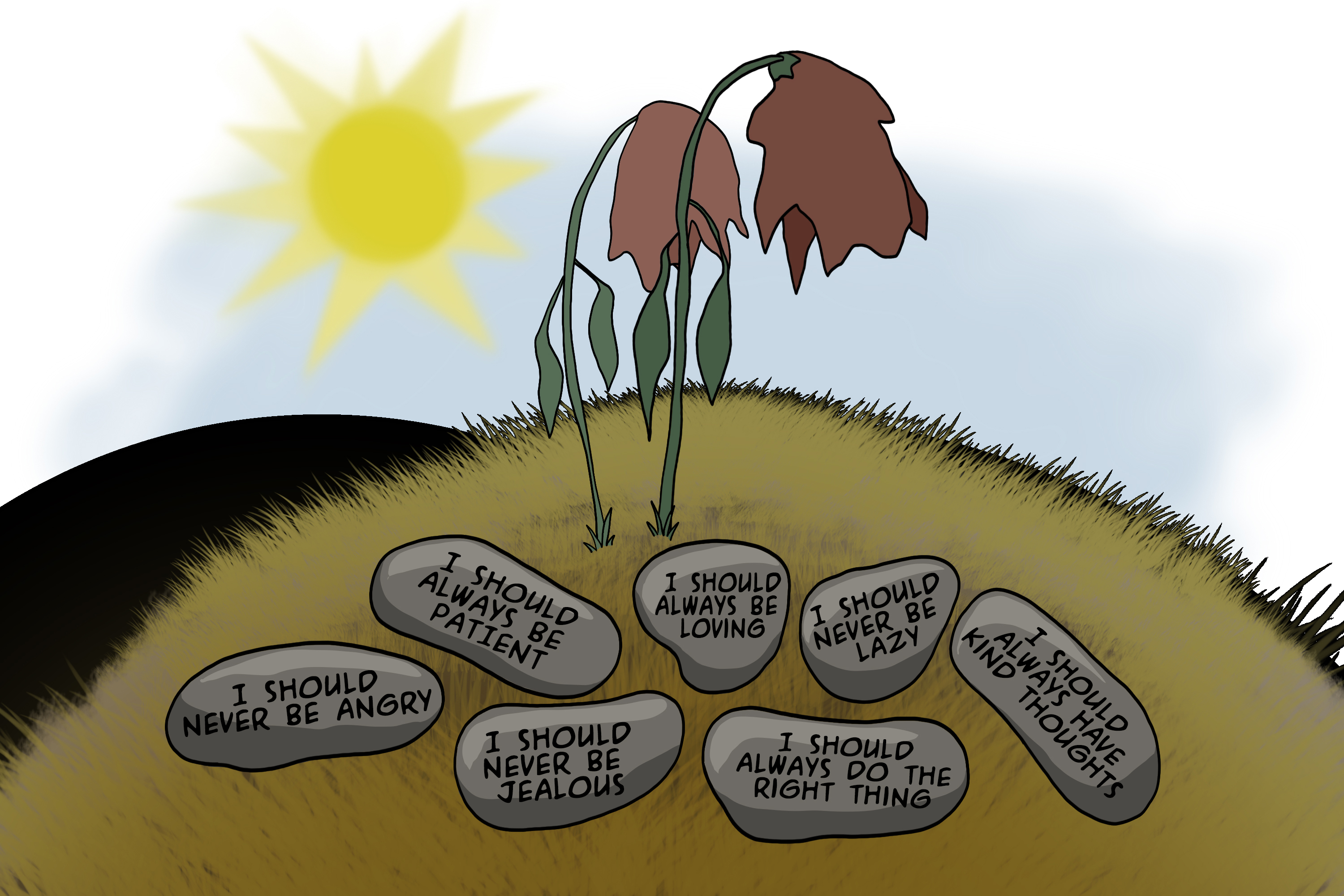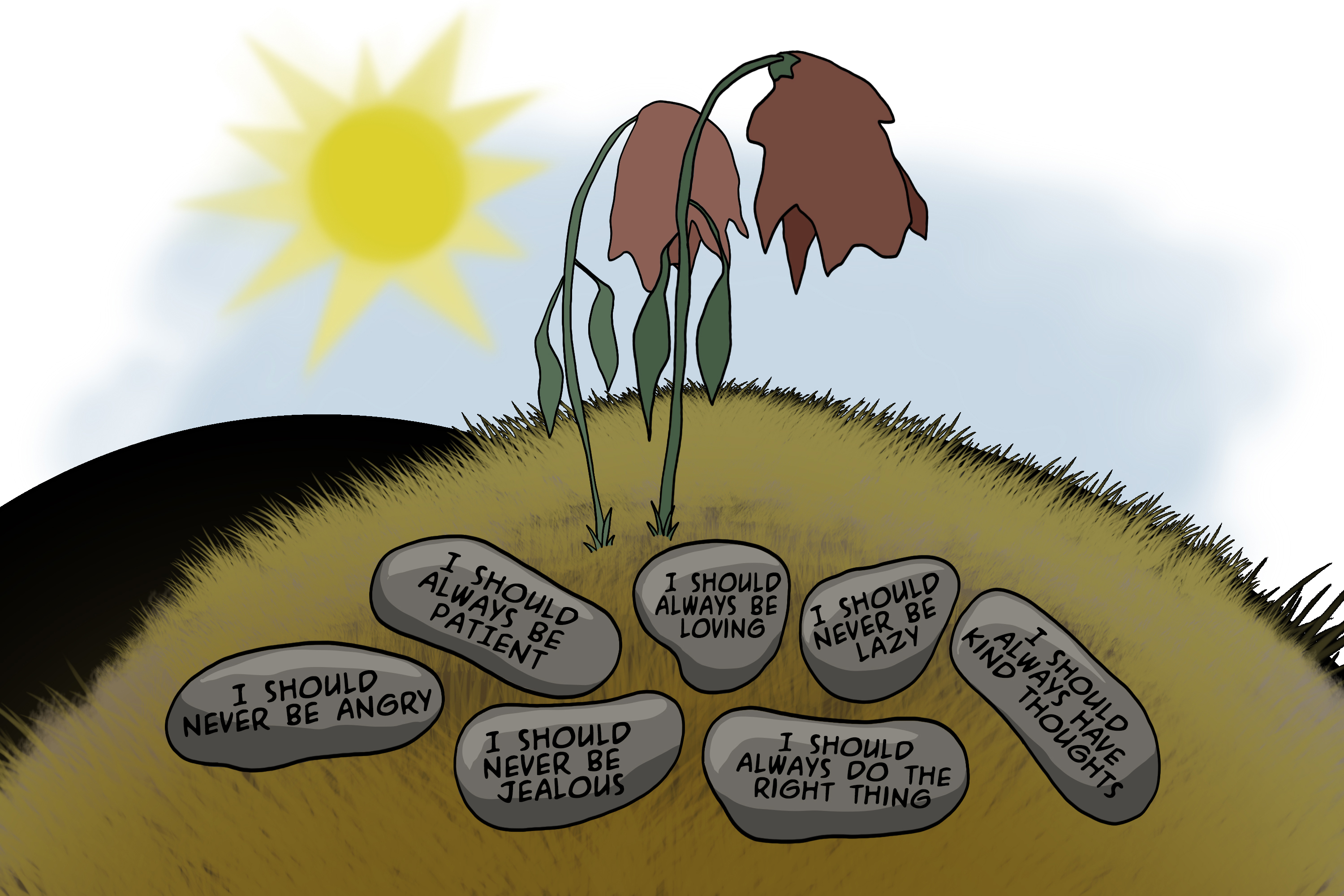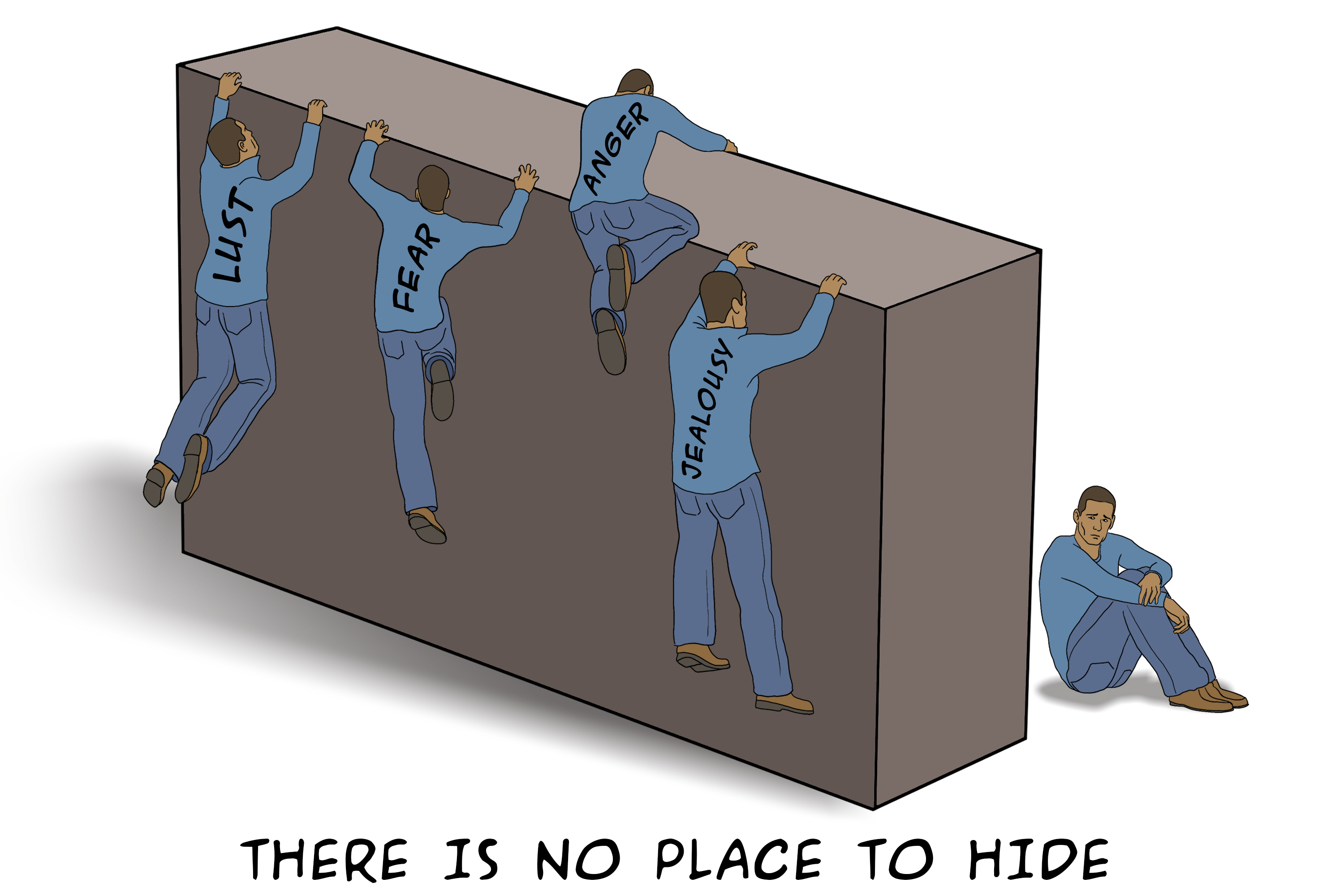
There are many obvious ways we nurture ourselves physically, emotionally, intellectually and spiritually: getting enough sleep, eating nutritiously, meditating, exercising regularly, limiting TV watching, resolving conflict with our significant other before sleep, and reading uplifting material. There are a myriad of social/emotional principles such as acceptance, resolving conflict peacefully, focused listening, gratitude, forgiveness of others, and ourselves that also enhance our well-being at every level.
These positive approaches are apparent, however, for many the negative way we speak to ourselves is an unconscious habit. For some, this internal judge and jury go on non-stop day in and day out. It’s no wonder that we get upset, feel alienated, and run out of energy.
Our Program teaches, “the word should is no good.” We suffer because we expect circumstances, ourselves and others to differ from how they appear. For the purpose of this discussion, let’s focus on our internal dialogue in response to when we think, feel or behave in a way that goes against how we think we “should.”

In reality we are capable of any emotion.

It’s one thing, when we “should” do, think, feel or say something that does not live up to our expectations. It’s like throwing gasoline onto a fire when we indulge the internal dialogue that berates ourselves for not behaving the way is correct. Most of us would never speak to another person this way.

We have a choice of accepting ourselves the way we are or indulging the voice of the internal negative critic. The consequence of the first choice is freedom, peace and compassion. The second choice, produces conflict, unhappiness and negativity. Accepting who we are moment to moment does not mean we have given up and unable to grow. On the contrary, acceptance is the first step that opens the door to change.
Activity For Further Reflection
These are just words until incorporated into everyday experience. Let’s do this home assignment: Over the next week, for one hour each day, try to accept your every thought, emotion and action. First observe, then dismiss the part of you that negatively judges your thoughts, actions and emotions.

